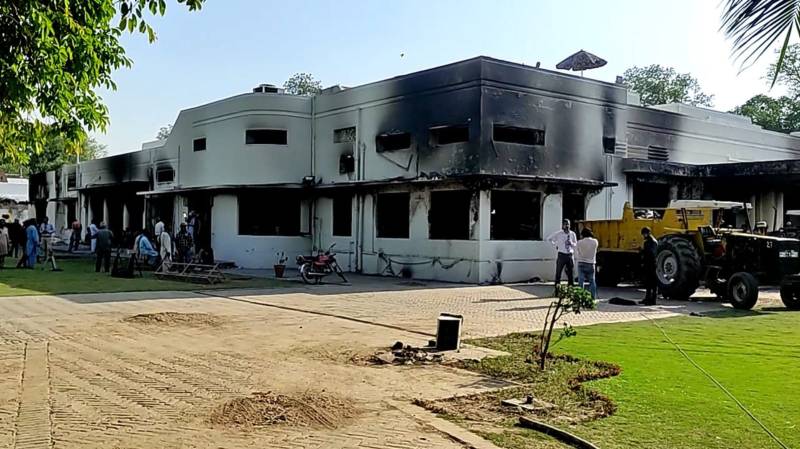Democracy is under attack is perhaps the most used catchphrase in political campaigning and rallying. Now while 2024 is a global elections year with a good majority of 64 countries due to have general elections, one might expect to hear this phrase more frequently. But for the images that become akin to phrases, the United States’ democracy did come under attack on January 6 2021 when Capitol Hill was stormed by Trump’s supporters in a rage and fury that their leader must not be replaced by the winning President Joe Biden of the 2020 Presidential elections.
The revered accountability and justice system of the US did make an example out of the rioters. Of the 700 people booked for trials, 450 have been sentenced to prison. But what about the prime instigator, Trump; for 53% of Americans count the Capitol Hill incidents as a direct attack on the oldest, most consolidated democracy of the world? Extensive legal trials and court hearings have kept Trump busy since 2021 and thanks to that, he is off the ballot lists of Maine and Colorado but is also simultaneously set to contest Joe Biden in the race to the White House.
Fighting a legal battle on 91 felony charges in four criminal cases, it is complicated how and if Trump will land in the Presidential race.
But it is equally interesting to see Trump’s rallying cry that does not count the Capitol Hill attack as undemocratic but him being out of ballot lists to be a blatant violation of democratic values. Speaking of the oldest democracy, the guardian institutions of the state concentrated in the Capitol Hill neighbourhood are permanent. These dome-shaped monuments draw their pride from being the protectors of a governance system that the US proudly lent out to the world.
The populist political narrative, however, gets affirmative nods from millions of people. When the world got swept away by a wave of populism, not many were ready to listen to the critics of this appealing phenomenon. But then state institutions were attacked, and that too very literally. By the logic of the instigators, they were told by a populist leader that the 2020 elections were a fraud and they must protect democracy. Four hours of chaos, additional law enforcement sought, city-wide curfew, and public emergency – the trials that followed had a way of finding out the truth and distinguishing what were only “false and debunked theories of election fraud” spoken loud in voice amplifiers by a man who could not succumb to an election defeat.
Three years after the Capitol Hill violence, for many pro-democracy analysts and experts in the United States, the system has proven its resilience to absorb a shock as dangerous as that. Placing their trust in the democratic culture of the country, they believe the informed US citizens will know who to vote for and who is the real threat to democracy. In any case, state institutions that are the bedrock of democracy jumped in to guard the system and punish those who stood to challenge it. But some also fear a scenario where Trump wins and returns to the White House because as a matter of fact, his support has not completely withered away.
Not all of his supporters resonate with storming the Capitol Hill attitude but for many of them, he is their pick because they are not very happy with Biden’s economic policies. But those supporters who never considered the Capitol Hill attack an attack on democracy must ring alarm bells. It is here that reverse inferring blurs the line between a truth and a lie. With a mass following, blurring that line and playing the victim is easier; just what Trump does when he says his democratic right to contest elections is being stolen away from him by his political opponents.
What democratic right? Do rioters belong in prison or Parliament?
If we are to assume that the answers must be left to voters, we are also implying that the judicial system is irrelevant. If anarchists are allowed to run for office, God save the democracy! What the populists often tend to forget is that they are still part of a state and a system that they cannot overrule or surpass. The fate of one such populist is no different from the other.
US’s January 6 was Pakistan’s May 9, 2023 – the mayhem, the violence where people took it upon themselves to destroy military installations, civil infrastructure, and even monuments associated with martyrs; a loss that has been reported equivalent to $1 billion monetarily. In a quick comparison, Pakistan’s popular politician, now the ex-chairman of the most popular political party, Imran Khan, was very unhappy after he was ousted from the Parliament in a No Confidence move. Though in the US, November 2020 elections were taking place according to a regular election schedule, Khan’s party – Pakistan Tehrik e Insaaf (PTI) wanted an election which was not due, after his ouster as the Prime Minister.
In the months between the ouster and May 9, Khan raised the narrative of victimhood and projected himself as the only one who could save the country, just like Trump thought of himself. And just like Trump tried to overturn the election results, Khan blamed the No Confidence to be a manufactured episode. And just like Trump asked his supporters to “fight like hell” so that he could stay in the White House, Khan instigated his followers to destroy everything if he is arrested. And just like Trump faces felony charges, Khan is under arrest for treason. Both populist politicians overestimated their mass following to be an open license to make the state subservient.
In the US, the strong judiciary, democratic state institutions, and individuals’ political correctness came in the way. But Pakistan is still an infant in its experience with democracy.
Nevertheless, the state recognised the vandalism and those who caused it. Now when general elections are due on February 8, the narrative of PTI remains centred on questioning the legitimacy of elections in addition to victimhood. The state institutions, on the other side, have made it clear that those facing trials or who have been indicted cannot be a part of the candidacy as per legal and constitutional limitations. The party has suffered a setback for its complete disregard for the state that exists beyond politics. Any state of the world punishes agitation that directly threatens national sanctity and sovereignty.
To expect that a degree of political advantage can make the state to change its course is a fallacy at best. Rising to prominence and record-breaking popularity instilled in PTI a sense of being impregnable. However, governance shortcomings were too noticeable to be ignored. It was a dream of millions of Pakistanis to be ruled by a different party that could make their lives better. But that dream started to fade away when the country was hit by one of the worst inflation cycles. But not ready to accept responsibility, the PTI under Khan made a decision – charged politics that surpassed all regard for democracy & state.
February 8 will be the decisive day. Trump’s populist fervour melted down when Americans chose Biden as their 48th President in 2020. For Khan, the ‘level playing field’ was set on fire by the May 9 rioters. What remains are only the ashes.
Nuzhat Rana is a young scholar with a background in International Relations & Peace and Conflict Studies. She has a sound experience of working as an editor after being on board with various editorial teams of leading digital & print media houses.



